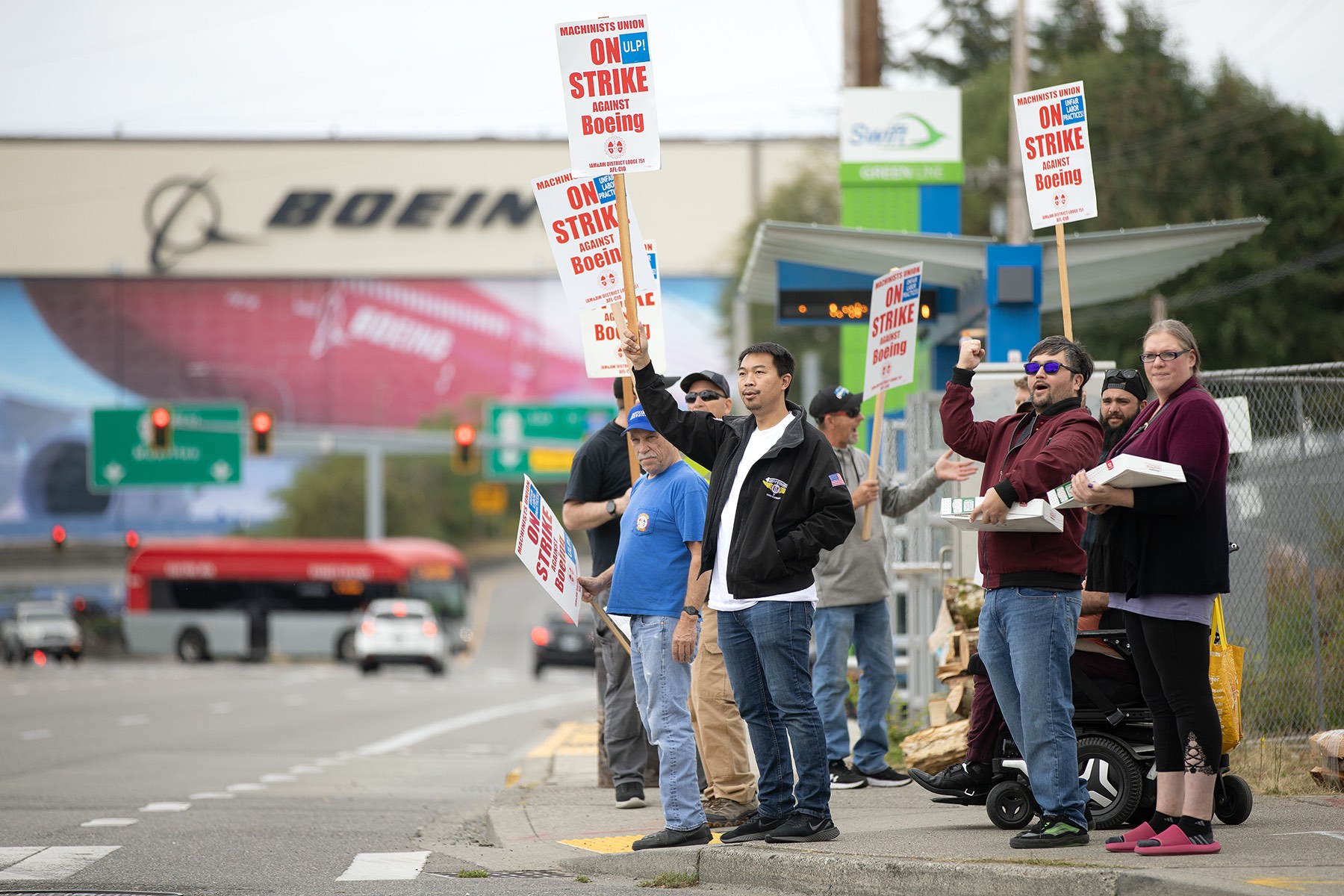3,000 Boeing Workers Strike, Demanding Fair Wages Amid Fighter Jet Production Crisis
On August 4, 2023, over 3,000 workers at Boeing"s aircraft manufacturing facilities initiated a strike, protesting against what they describe as unfair wage practices amid escalating production demands for fighter jets. The strike, which has garnered significant attention, highlights ongoing tensions between labor and management in one of the world"s largest aerospace companies.
Background & Context
The striking workers are part of the International Association of Machinists and Aerospace Workers (IAM), a union representing a significant portion of Boeing"s workforce. The protest comes at a crucial time as the company ramps up production to meet military contracts, particularly for advanced fighter jets. With the U.S. defense budget increasing, the demand for these aircraft has surged, placing additional pressure on the workforce.
Labor relations at Boeing have been fraught with challenges in recent years, particularly following the fallout from the 737 Max crisis and the COVID-19 pandemic. Workers have expressed concerns over safety, job security, and inadequate compensation in light of rising living costs. The current strike is a culmination of these long-standing grievances, with employees seeking a pay increase that reflects their contributions to the company’s profits and the high stakes of their work.
Key Developments
The strike began early in the morning, with workers walking off the job at several key production sites, including facilities in Renton, Washington, and St. Louis, Missouri. Union leaders have stated that negotiations with Boeing have stalled, prompting the need for immediate action. "Our members are standing up for fair wages and working conditions that reflect the realities of today’s economy," said IAM spokesperson, Mary Johnson.
Boeing"s management has responded by emphasizing their commitment to reaching a fair agreement while maintaining production schedules. "We value our workforce and are dedicated to finding solutions that support both our employees and the needs of our customers," said Boeing’s Chief Operating Officer, Dave Calhoun. However, many workers remain skeptical of these assurances, citing past experiences where promises did not translate into tangible benefits.
\n\n
Image for 3,000 Boeing Workers Strike, Demanding Fair Wages Amid Fighter Jet Production Crisis
Broader Impact
The implications of this strike extend beyond Boeing"s immediate workforce. As the U.S. military relies heavily on Boeing for its fighter jets, any disruption in production could affect national security and defense capabilities. Experts warn that prolonged strikes could lead to delays in military readiness, particularly as geopolitical tensions continue to rise globally.
Furthermore, this labor action is part of a larger trend observed across various industries, where workers are increasingly vocal about their rights and compensation. Similar situations have emerged in sectors ranging from healthcare to technology, where employees are demanding better pay, improved working conditions, and more substantial job security. The Boeing strike may serve as a catalyst for other labor movements, reinforcing the notion that workers are willing to take a stand for their rights.
What"s Next
As the strike continues, both sides appear to be preparing for a protracted negotiation process. Union leaders have called for solidarity, encouraging workers across the nation to support their cause. Meanwhile, Boeing is expected to explore various strategies to mitigate the impact of the strike, including potential adjustments in supply chain logistics and workforce reallocations.
The situation at Boeing also intersects with broader discussions about labor rights and corporate responsibility, especially as the company faces increasing scrutiny regarding its labor practices. Recent developments in labor relations at other major corporations may influence the outcome of this strike, as both employees and management look to navigate the complexities of the current economic landscape.
As previously reported, ongoing labor movements across the country reflect a growing dissatisfaction with wage stagnation and working conditions. The outcome of the Boeing strike could set a precedent for future labor negotiations, potentially reshaping the landscape of American industry.

Image for 3,000 Boeing Workers Strike, Demanding Fair Wages Amid Fighter Jet Production Crisis



![[Video] Gunfire between Iraqi security forces and Sadr militias in Baghdad](/_next/image?url=%2Fapi%2Fimage%2Fthumbnails%2Fthumbnail-1768343508874-4redb-thumbnail.jpg&w=3840&q=75)
